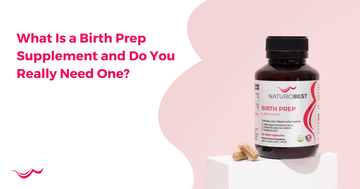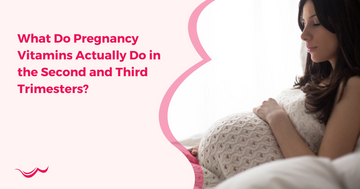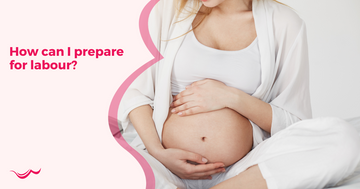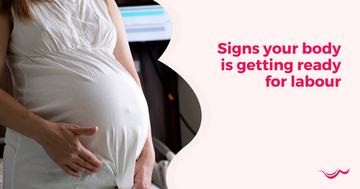Let’s talk about... Iron in pregnancy
by Nikki Warren on Aug 02, 2022

The recommended daily intake of iron during pregnancy is 27mg. A lot of people do not meet their daily intake of iron during pregnancy. Something I hear a lot is "oh I like to get my nutrients from food" or "my mum/grandma never took supplements during pregnancy..."
Unfortunately, it is almost impossible to get all of our required nutrients from food. Especially during pregnancy and the reason for this is two-fold.
Due to over-farming our soil simply doesn't have the same level of nutrients it did back in grandma's day.
Iron in pregnancy is vital. Your iron levels matter and your nutrients during pregnancy matter. Iron supplementation may be needed to meet your intake to make sure your iron levels are adequate. Having just the 1 cup of spinach isn't going to meet your iron intake alone do unfortunately.
During pregnancy, your requirements for certain nutrients, especially iron, increases substantially.
Let's look at this in a bit more detail. The following foods are high in iron. Bearing in mind you need 27mg daily, let's see what that would look like:
One piece of steak - 4-5mg
One cup of spinach - 0.8mg
One egg - 0.95mg
10 dried peach halves - 5.28mg
One cup of cooked lentils - 6.6mg
One cup of walnuts - 3.1mg
One chicken breast - 1.07mg
One cup of beetroot - 1.24mg
You can see how difficult it is to achieve 27mg every single day, right?
You might argue, well what are the consequences? What will happen if I don't get all of my recommended daily nutrients during pregnancy?
At best you will start to feel tired. Then subtle changes such as poor immunity, breathlessness, and poor concentration occur.
At worst, your baby will suffer. Nutrients are the building blocks for healthy intellectual development, healthy growth, and a robust immune system.
In the case of iron, it could be very dangerous if you are anaemic and have a postpartum haemorrhage. You may need to have a blood transfusion which carries its own risks.
Being anaemic may also contribute to your risk of complete burnout once you have your baby. The post-partum period is already difficult with learning how to look after a new-born.
Imagine being anaemic on top of having stress and no sleep. It is best that we try to prevent this as much as we can. It isn't always avoidable, but there is a lot we can do to reduce the risk of that happening.
In the first trimester, iron supplementation is known to aggravate the symptoms of morning sickness. The best thing to do is be prepared by boosting your iron levels prior to pregnancy.
That way you can take a prenatal multi-vitamin that doesn't contain iron in the first trimester. You can then commence iron supplementation in the second trimester when nausea subsides. Usually, this is around 14-16 weeks gestation.
However, as roughly half of all pregnancies are unplanned. You may find yourself in a situation where you are iron deficient in the first trimester and feeling nauseous.
This can make it difficult to keep down food all together. Which can make it almost impossible to meet your nutrient intake requirements for pregnancy. This is why premium supplementation is essential to helping you be as healthy as you can be to grow your baby.
In the case of iron deficiency in the first trimester, I recommend taking Iron & Brain Support a couple of times a week if that's all you can tolerate. Studies have shown that taking iron twice a week is just as effective as daily iron supplementation for boosting haemoglobin levels.
As always, it is best to seek the guidance of a naturopath or nutritionist when supplementing during pregnancy.




